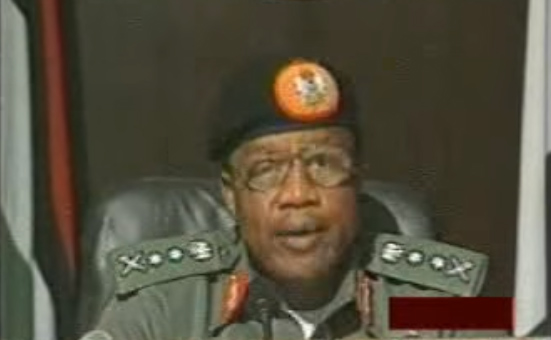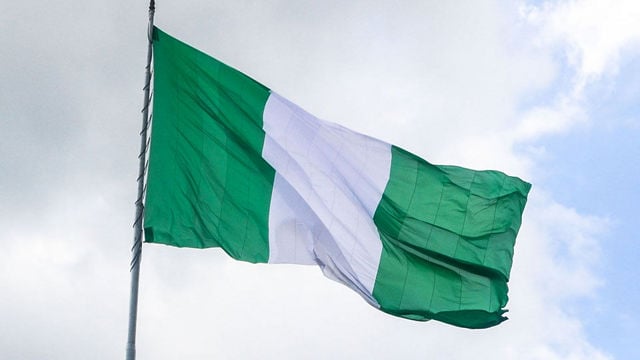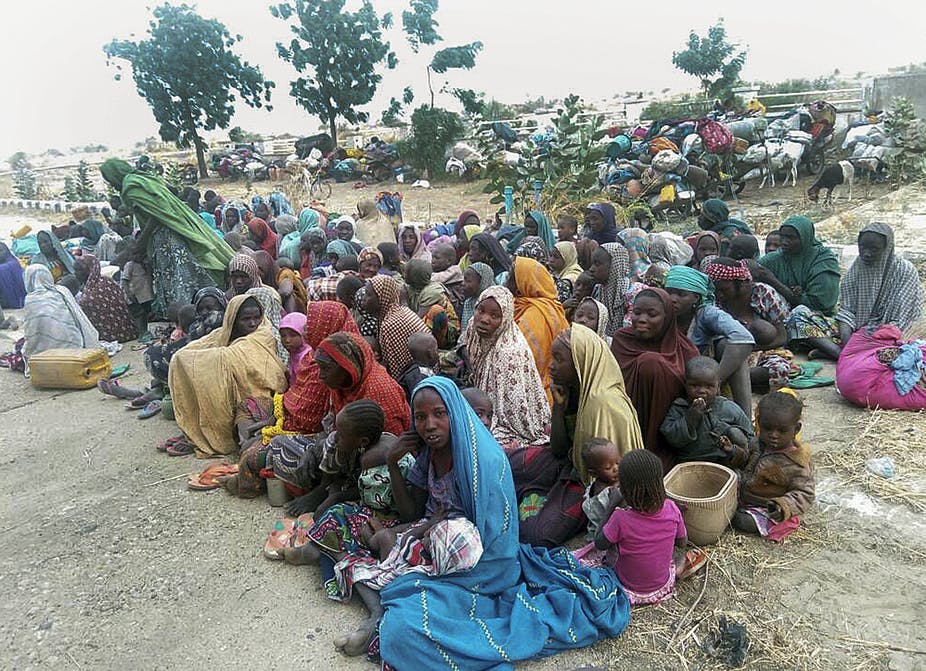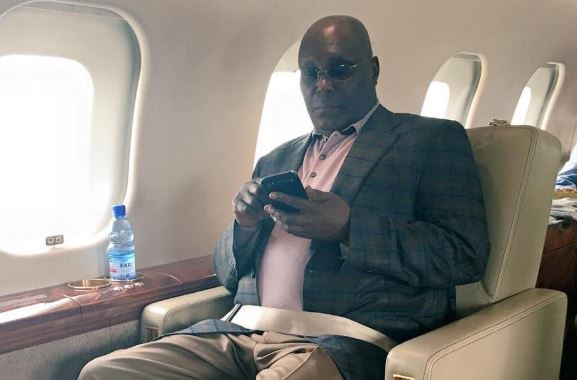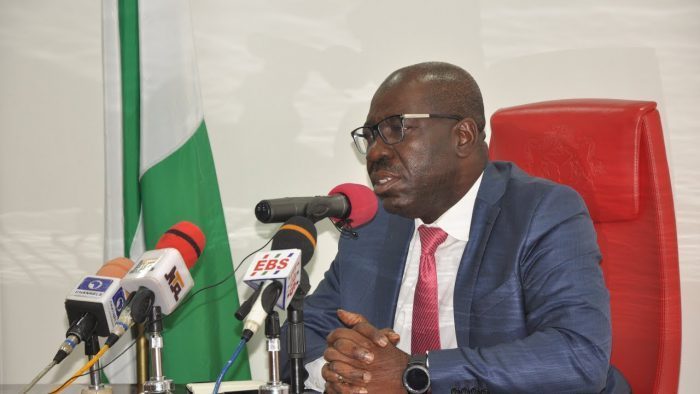BY ABAYOMI OGUNSANYA
On June 4, the world remembered, as it has done in the last thirty-years, the unfortunate incident at Tienanmen Square in the centre of Beijing in which hundreds of protesters were killed or mauled by the Chinese military at the behest of the Chinese government. During that protest, which was organised and led by students and their leaders to demand democratic reforms, press freedom, freedom of speech and an end to corruption, the protesters had swollen from a handful of students to hundreds of a mixed crowd over a period of weeks before about 200,000 soldiers, equipped with tanks and AK-47s, were deployed on the night of 3 June. Although the number of those who died has been hotly contested, even the Chinese government’s official number of 300 qualifies as one of the most naked acts of violent enactments on unarmed civilians anywhere in the world.
Four years after the Tienanmen Square Protest, in the course of a series of protests in far away Nigeria, over two hundred peaceful demonstrators were mowed down in cold blood on the streets of Lagos. According to the Nigerian writer and Nobel Prize winner, Wole Soyinka, who was ‘present at one of the scenes of slaughter—the Ipaja area’ on June 27, 1993, Nigeria was, during that ‘season of anomy,’ ‘confronted…by a dictatorship specimen that was unprecedented in our experience of military viciousness.’ The brutal crackdown on and the massacre of Nigerians by General Sani Abacha, whose rabidly homicidal junta had ‘booted out the lame-duck interim régime of Ernest Sonekan,’ was the culmination of a concatenation of a series of political manoeuvres that had begun, on June 23, 1993, with the barbarous annulment of a general election on 12 June, 1993—an election that was acclaimed to be free and fair. In the aftermath of the annulment of that election, which was believed to have been won by the late Chief Moshood Kashimawo Olawale (MKO) Abiola, the Babangida administration, which had held the nation down in the thrall of dictatorship for eight years, had imploded following widespread civil disobedience, internal rebellion among top military Chiefs, and labour strikes—all amidst considerable external pressure which eventuated in Babangida ‘stepping aside.’
In 1999, six years after the annulment, Nigeria became a democracy, and twenty three years later, June 12 remains iconic in the annals of Nigeria’s political development and its official recognition as Independent Day by, ironically, a former military dictator, now firmly ensures that it is commemorated as a national holiday.
Advertisement
Both the Tienanmen Square Massacre and the annulment of June 12 Election represent egregious acts of violence and a blight on the political history of China and Nigeria respectively. But whereas the former remains anathema to the Chinese Communist Party and a violently repressed historical event, the latter has now been given proper recognition and is now being commemorated as a national holiday. Although the Chinese Communist Party abhors any open reference to the Tienanmen Square violence in China or its teaching in schools (and considerable effort has been made to ruthlessly censor it from books, newspaper, and online), the event has continued to be commemorated in other places anyway. And while it is true, as Chaohua Wang observes in his ‘Diary’ penned for London Review of Books of July 2007, commemoration of important historical events like the Tienanmen Square Movement often become, with the passage of time, sterile ceremonies that, contrary to their intentions, ‘are more often reminders of the power of forgetting,’ we cannot simply jettison them to the dustbin of history. It is truly gratifying that June 12 is now being commemorated with official ceremonies and has become a public holiday; we must never allow it to lose its meaning.
As an epochal event in the political history of Nigeria, June 12 should be an occasion for stock-taking and a sober reminder of our recent past. Twenty-six years after that annulment and twenty years of unbroken democratic governance, how much progress have we made in regard to the conduct of elections? More pertinently, is it safe to say that Nigerians can hold peaceful protests without fearing that they could be mowed down by the police and the military? Finally, what is the state of human rights in Nigeria? These, in my view, are the questions that should guide our continuous reflection on the state of our nation every time June 12 comes along. The issues at stake, in contemplating June 12 as a symbolic date in the effort to evolve a viable nation out of the current political contraption, are the same issues that the military sought to destroy through that infamous annulment. These issues include free and fair election, the freedom to hold peaceful protest, freedom of the press, and, broadly, all the rights embodied by what we refer to as fundamental human rights. While we can be happy that the military have been effectively shut out of governance and that democracy has, well, gained a foothold in our political life, there is very little to celebrate about the conducts of our elections since the return of democracy in 1999.
Since 1999, each election circle has been marked by significant deterioration on different fronts. Violence and blatant rigging have characterised, in varying degrees, all the elections that have been conducted. Indeed, a latest report by Human Rights Watch contains a damning condemnation of the last general election which ushered in the current administration—an administration that, quite ironically, is also the first to recognise June 12 as the true Democracy Day!
Advertisement
I have written in the past that Nigeria has not made much progress in the area of safeguarding human rights since the return of democratic politics. In making that assertion, I noted that our democracy is still largely a mirage and that what we have is but an illusion. I made that observation just before the last election and against the backdrop of a report by Economist Intelligence Unit’s Democracy Index which says that Nigeria is becoming less democratic. In that report, Sierra Leon and Burkina Faso, two countries with more recent democratic history than Nigeria, are rated ahead of Nigeria, while Uganda, which has had the same ruler for 31 years, performed better than the country. Although Nigeria prides herself as the biggest democracy in Africa, the recent ranking of the country as 20 out of the 44 sub-Saharan African countries and 108 in the world cast a pall on that claim. It is even more significant that Nigeria is classified as operating a hybrid regime, which is a combination of democratic traits, such as the holding of regular elections, and autocratic tendencies, such as political repression and rampant violation of human rights. It is also a matter for sober reflection that that rating covers the period since 2015, a period during which Nigeria dropped 18 places in the Economist Intelligence Unit’s Democracy Index. This means, in effect, that the last five years have witnessed a decline in democratic culture in Nigeria. Why and how have we had this decline? In my reflection on these questions, I argued that:
The answer—to the question of why—is to be found, I dare say, in the kind of leadership at the helm of affairs, especially the head of the executive arm where a tremendous amount of power is concentrated. In the debates about restructuring, one thing that sticks out like a sore thumb is the fact that there is overconcentration of power in the ‘centre,’ and the centre here is, more or less, a shorthand for the presidency—in part at least. If we strip the word ‘presidency’ of all the ostensible suggestion of a multifarious composition, we will be left with the truth that the presidency is another word for a single individual: the President. And this is where we might profitably plumb the ramification of the question of why. In my considered opinion, the person of the President of the Federal Republic of Nigeria remains the number one factor to be considered in our attempt to furnish an answer to the question of why our country is becoming less democratic. Let me explain. President Muhammadu Buhari has proved time and again that he is no democrat.
… Buhari was sold to Nigerians as ‘a born again democrat.’ He was touted as a reformed democrat who has changed—both literally and figuratively—from his erstwhile military fatigue, into civilian clothing and is, therefore, fit for democratic culture and institutions. Alas, nothing—judging from recent occurrences—can be further from the truth. Recently, I had course to refresh my memory about Buhari’s first coming as a military Head of State and I found a handy reference in Wole Soyinka’s An Open Sore of a Continent. In one chapter in which Soyinka reviews some of the political developments of that era, the playwright writes insightfully about Buhari’s government as follows:
‘Buhari’s regime vaunted itself as the most thorough, ruthless, and disciplined that Nigeria would ever experience, yet, one after the other, the most criminally liable of Shagari’s officers—both within party and government—left the country, came in and out as they pleased, while Buhari’s tribunal sentenced opposition figures to spells of between a hundred and three hundred years in prison for every dubious kind of crime. The upshot of the “rigidity” and corrective zeal of that reign of terror was indisputable: a partisan scale of judgment, weighed heavily against progressives, especially all those, from whatever part of the country, who were considered a serious threat to the hegemonic design of a self-perpetuating clique from the yet feudally oriented part of the country, whose leaders remain backward in their thinking, reactionary and nepotistic in political orientation, a clique that is still made up largely of unproductive scions of a moribund social order that has earned itself such titles—not always accurate but always instructive—as the Kaduna or Northern Mafia, feudal irredentists, Dan Fodio Jihadists, and the Sokoto Caliphate.’
Not much, as this excerpt clearly shows, has changed about Buhari. Not an awful lot. He remains committed to the north, especially to a section of that part of the country that is his immediate constituency. His insular and narrow provincial consciousness are only marched by his desperation to run an effective police state; a state in which he is able to ride roughshod over all opposition.
Advertisement
If anyone is still in doubt that President Muhammadu Buhari is not the democrat that the sheeple of our polity are making him out to be, I invite that person to take a dispassionate look at some of the notable indices of autocracy as expressed through political repression and other actions of the President. While I still stand by the above, I will also add, in light of June 12, that the most important barometer of our (un)changing political landscape is the political elite and former military leaders whom we have continued to recycle in perpetuity. That is why, twenty-six years after June 12 happened, democracy remains just an illusion. The illusion, like the illusion of freedom in China, remains because we are now a democracy, but unlike us, the illusion of freedom in modern China is not lost on anyone keenly following the situation of human rights abuses in that country. Although tanks are no longer being rolled over defenceless and peaceful protesters and far-reaching measures have been taken to erase the history of Tienanmen Square movement from the consciousness of the Chinese public, the communist party remains blatantly intolerant of civic freedom. As Amnesty International notes, nowadays in China, surveillance and censorship have replaced tanks and guns and activists, demanding for reform and those reporting human rights violations, are routinely being hounded and sent to jail. For example, activists Zhang Junyong, Fu Hailu and Luo Fuyu were handed suspended 3 year jail terms for “picking quarrels and provoking trouble. Criminal charges were brought against them for “making bottles of ‘Baijiu’ (Chinese Liquour) commemorating the Tienanmen crackdown”. Under the Chinese frighteningly autocratic crackdown, the three activists are now forced to wear electronic bracelets that transmitted their GPS position, and record voice and video. According to Amnesty International, “many citizen journalists such as Huang QI are systematically detained for reporting human rights violations.” The government is impervious to protests and criticism and is increasingly desperate to suppress dissent.
June 12 embodies a series of historical moments that began with military takeover in 1966 and later transmogrified into a movement, a movement that is now the ‘darling’ of the present government desperately in search of legitimacy following an election that was characterised by mindless violence and rigging on a scale that should trouble anyone who is concerned about the future of democracy and the Nigerian state. The annulment of the June 12 election is only an incident in that series of historical moments, albeit ‘the defining moment’ in the unravelling of about two decades of military brigandage and the violation of our civic space. In reflecting on the series of historical moments which June 12 embodies, therefore, one can draw a parallel between the experiences of repression in China (from the period during the Tienanmen massacre and today) and the Nigerian experience during the military era and today. As I have suggested earlier, most of the defining features of military era Nigeria still persist today, including media censorship (witness the recent shutting down of AIT/Ray Power and the persistent assaults on other media organizations since the beginning of the present democratic dispensation), crackdown on protesters (including mass killings of protesting groups such as IPOB and Shi’a Muslims), and regulation of free speech as seen in the current attempt to censor social media posts. Although the military are no longer in power, Nigeria is still reeling from the hangover of their infamy.
Ogunsanya, an independent scholar and a freelance journalist, lives in Dublin, Ireland
Advertisement
Views expressed by contributors are strictly personal and not of TheCable.
Add a comment
